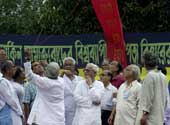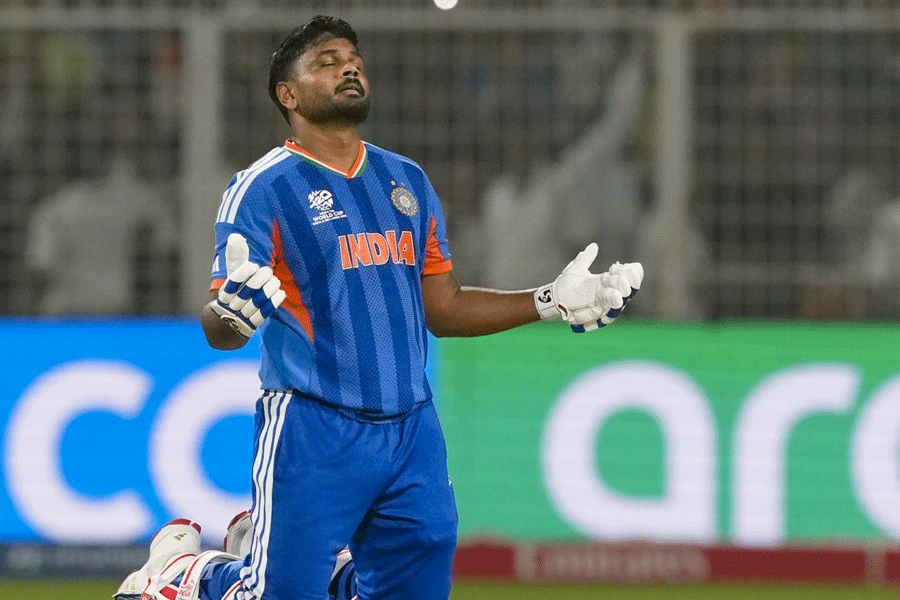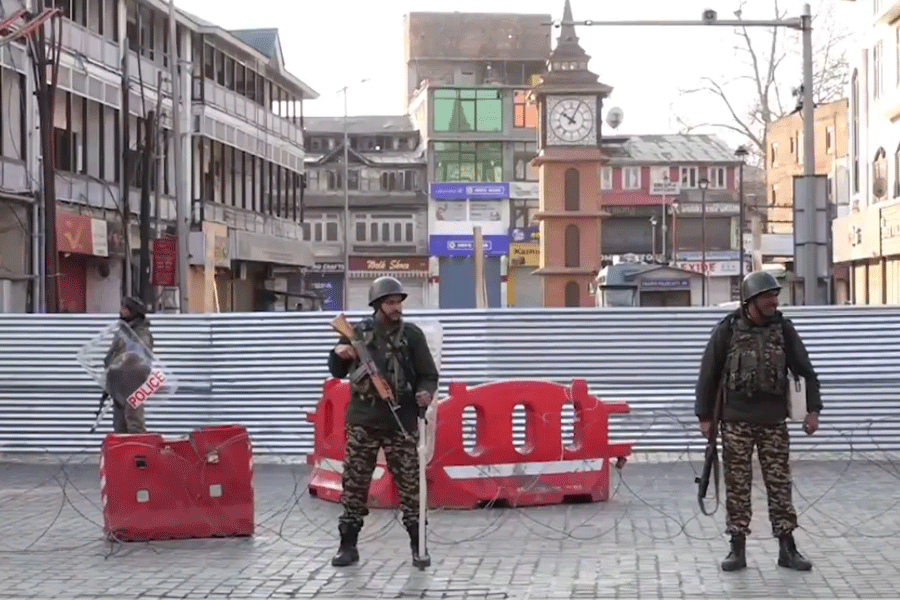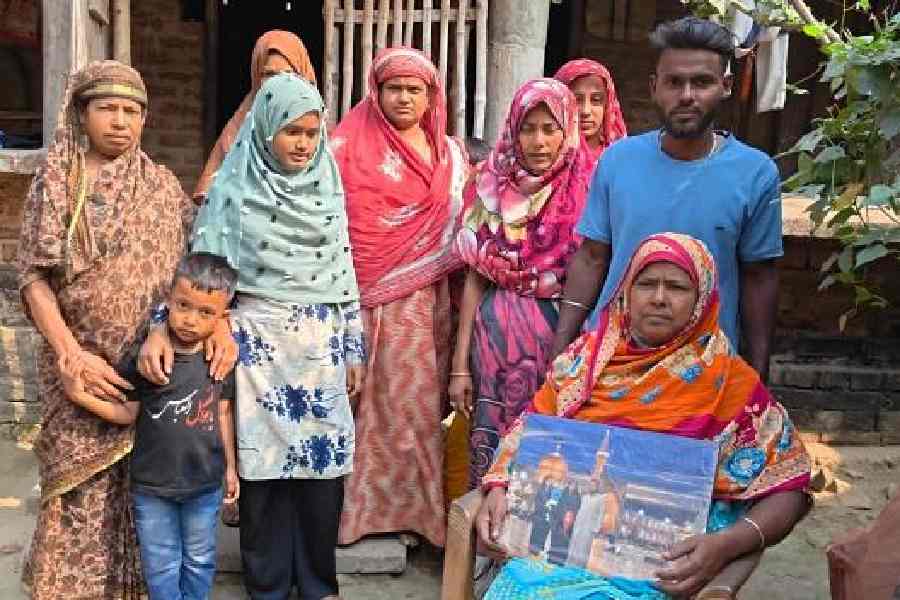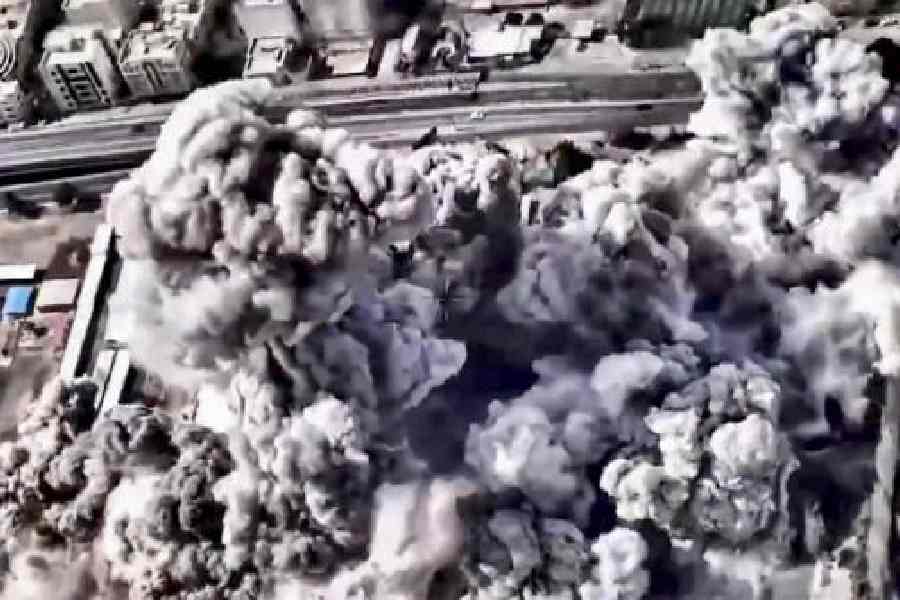|
|
| Too many out of it |
Lalu Prasad retained power despite the continuing decline of Bihar?s economy and governance. The electorate kept voting Prasad back to power despite the appalling record of maladministration, theft, criminality and incompetence. Doubts about the relevance of democracy and the calibre of people who emerge from it as political leaders were inevitably raised.
Prasad is a master of the media. His rustic speech, apparent secularism and outrageous statements conceal his total callousness about good governance and people?s welfare. The television loves him because he is good entertainment. Even when exit polls showed his imminent rout, Prannoy Roy interviewing Prasad and Nitish Kumar together, was soft on the former, giving him unlimited time without interruption, but was very tough and demanding with Nitish, frequently interrupting him. The television built Prasad?s national image and was favourably biased towards him. It will sorely miss him now. But the television must not persist in promoting his national image.
In 1995, when Prasad had just won a second term as chief minister, he participated in a Ficci conference at the staid old Patna Chamber of Commerce. He arrived late and there was a flurry on the stage as he made his demands known. A spittoon was placed near him. He spat into it and then demanded replenishment of his chew. Soon he spat again, this time onto the pristine platform itself. He showed no contrition because it was no error. He was conveying unambiguously to Bihar?s businessmen that he was now the boss and could spit on them. They had to accept him and his followers as they were. For many years, this ?in your face? attitude to the ruling classes and the upper castes, got him the following of millions of the lower castes. Prasad?s ?social engineering? and ?secularism? placed the Yadavs and the Muslims at the top of the heap. But his casual attitude to development led even those that he pampered finally to realize that they were suffering from lack of power, roads, policing, schools, health services and jobs.
My turn to speak at that meeting in Patna came soon after his arrival and after the spitting drama. I said that despite being uncomfortable speaking Hindi in public, I would speak in my broken Hindi so that he understood what I had to say. (Incidentally, I understand that Prasad is a double MA. His rusticity is obviously a deliberate veneer to cultivate his political constituency.) I quoted a Singapore intellectual at a meeting of south-east Asian economists, that their countries had Indians at the top of the economic ladder. With so many Indians in India, why were we so low down in comparison to most of south-east Asia? The same question could be asked about Bihar. Bihari workers and intellectuals were key to the economies of Calcutta and other parts of India. But Bihar was far behind the rest of India and sliding still farther back. Poor governance evidenced by the poor electricity system, terrible roads, poor law and order, theft of public funds meant for improving the state and so on were responsible.
Prasad responded at length. He said that his first term was focussed on establishing a social revolution to shift power to the deprived lower classes. Now that task had been accomplished. His second term would concentrate on development. But after 10 years of his own and his wife?s tenures as chief ministers he had failed to do so. A power shift to the Yadavs and Muslims did occur. But the main beneficiaries were his family, relatives and cronies. There was no attempt to improve the conditions for the deprived. He showed no vision for improving Bihar, and neither administrative nor managerial skills. He surrounded himself with venal and criminal courtiers. He let development funds to be stolen by them.
Prasad said that caste and community equations, not development, would win elections in Bihar. He never mentioned the political technology of fake voters, booth capturing and intimidation (also well used in West Bengal) that had helped him. A more vigilant Election Commission in Bihar did not allow it in this election. Finally, despite greater ?self-respect? but nothing else with Prasad, the low- er castes and Muslims voted him out.
It is still inexplicable that Prasad did nothing to control the deteriorating law and order situation ? ?most crime ridden state with at least 5,000 murders and 12,000 abductions a year? ? or to improve the physical and social infrastructure ? for example, teacher-pupil ratio in 2000 of 63 versus 43 in India, enrolment ratio in primary schools of 79 versus the all India ratio of 95.
Bihar?s governance was deteriorating from the Seventies. Prasad made it worse. Growth slowed down in Bihar when it accelerated in the rest of India; the percentage of the very poor fell sharply over India and remained static in Bihar. Per capita income in Bihar in 2000-01 at Rs 5,466 and 10 years earlier at Rs 2,966 were lower even than Orissa?s. Bihar has many more of the very poor than the rest of India and the proportions have not changed unlike in the rest of India: at 52.22 per cent in 1983 (44.41 for India); 52.13 per cent in 1988 (38.86 per cent India); 54.96 per cent in 1993-94 (35.97 per cent India). A higher proportion (77.4 per cent) depends on agriculture, against 58.4 per cent for all of India. There is little industrial production; gross industrial output per capita is Rs 883, the lowest among all states, against Rs 9,111 for India. Gross electricity consumption was 10.6 KW per hour, far lower than any other state (75.2 all India). Per capita bank deposits and bank credit are lower than those for any other state. Bihar is a state whose people have been caught in a time warp because of atrocious governance, especially in the last 15 years.
Amazingly, the ?common man?s party?, the Communist Party of India (Marxist), condoned his corruption, poor governance and the deteriorating Bihar situation and supported him because he was ?secular?. His support base included Dalits and the most backward classes, and not merely of Yadavs and Muslims. Since 1995, this support base was eroding.
Nitish Kumar?s cabinet composition recognizes that Bihar cannot escape caste and community equations. His emphasis is to be on development and cutting down crime through better administration. For growth, he must concentrate on improving agricultural productivity, and more equitable water availability, better seeds, credit for fertilizers, better access to markets by improving roads and storage and alternatives to crop agriculture like milk must be his first priority. If he uses the existing Central programmes efficiently, stops the theft and gets the administration to work, he can show quick results from the present poor levels. He must embolden the bureaucracy to come down heavily on violators of law, introduce a strong and independent lok ayukta to fight corruption, develop industries, especially in rural areas, and support handicrafts to provide employment, and promote self-help groups to enhance saving and self-financing. He must improve the performance of the power generating plants (the worst today in the country), invest in transmission and distribution while privatizing whatever he can on the Delhi model of incentive-based privatization. He must convey determination and sincerity to the people and act against those who have stolen public money. But witch-hunting Prasad just now will only strengthen the latter.
Nitish?s worst enemies are the entrenched caste armies led by criminals, Prasad and the ?secular? bigotry of the CPI(M) and the Congress. His focus is rightly on development, law and order and administration. As a decent man with a good administrative record, he has the capability to deliver the results that Prasad did not believe were required so long as he remained ?secular? and kept his caste and community voters with him.

